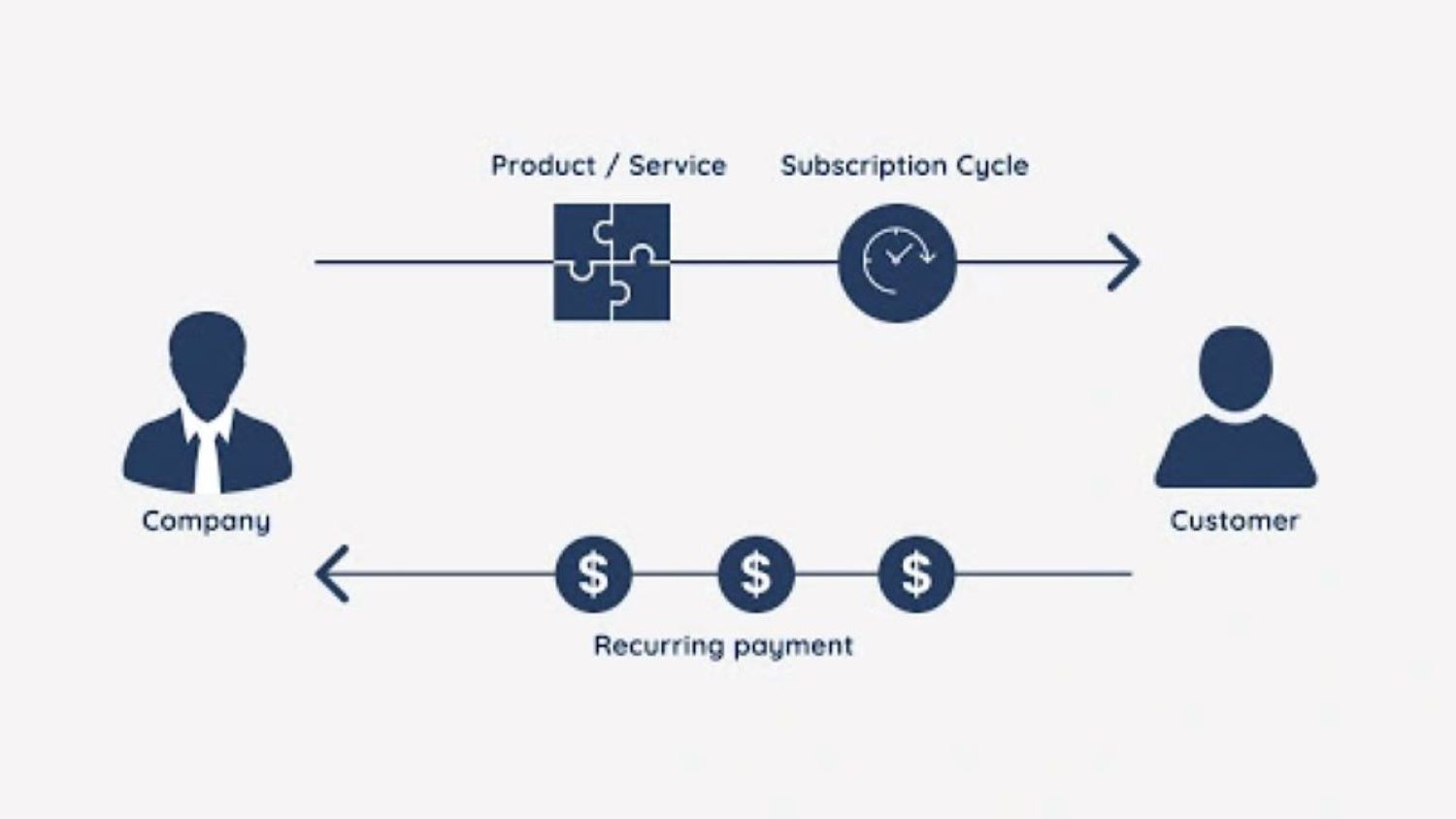Have you ever wondered how marketing agencies make money? It’s fascinating how they generate revenue from clients to keep the lights on and pay their employees. As business owners, we are always interested in learning about new money-making models.
Marketing agencies make money in a few key ways. They charge clients hourly fees or monthly retainers for ongoing services like social media, paid ads, websites, and content. Agencies also take a percentage when managing media budgets for clients. Recurring work brings in steady revenue. And of course, let’s not forget the role of the marketing department, which plays a vital role in shaping brand recognition and drives its growth.
In this article, we’ll look under the hood at some of the top strategies for how marketing agencies make money. We’ll explain their most common revenue streams. By the end, you’ll know how they turn marketing work into cold, hard cash!
How Do Marketing Agencies Make Money?
Have you ever wondered how marketing agencies stay in business and make a profit? There are a few critical ways that agencies generate revenue from their clients.
Digital marketing services (SEO, PPC, social media, etc.)
One of the main ways digital marketing agencies make money is by providing ongoing digital marketing services like search engine optimization (SEO), pay-per-click (PPC) advertising, and social media management (Google Analytics). Agencies charge clients monthly retainer fees for managing their online presence and marketing campaigns.
This includes optimizing websites to rank higher in search engines, running paid ads, posting on social media, engaging with customers, and reporting metrics and results. Retainer fees provide a reliable stream of recurring revenue each month.
Commission-Based Services and Advertising
Some agencies also make money through commission-based work. For example, if an agency handles a client’s PPC advertising, it may take a commission (usually 15-20%) on sales or leads generated from those ads. Agencies can also earn commissions from advertising sales and placements.
For instance, an agency might sell banner ads or sponsored content on a client’s website and pocket some advertising revenues. Commission-based models incentivize agencies to increase clients’ sales and conversions.
Consultation and Project Management
Marketing agencies can earn money by providing expertise and experience on specific projects. They may charge for their time when meeting with clients to discuss strategies for raising awareness of their brand or getting more customers.
Agencies also get paid to oversee specific campaigns or activities with a clear start and end date, like redesigning a website or launching a new product. This offers flexibility for businesses that need a helping hand with one-time tasks.
Outsourcing and Referrals
Marketing agencies can make money through outsourcing and referrals. Larger agencies can take on extra work from smaller companies that may need more resources. For example, a small agency could pass off parts of a campaign, like managing Facebook ads, to a more prominent agency with more staff.
Agencies also get a cut of payments when they connect clients to other helpful businesses, such as designers, developers, or advertising platforms. This allows everyone to focus on what they do best and make connections in the industry! So, this is how digital marketing agencies make money through outsourcing and referrals. This is one of the most important points in “How Do Marketing Agencies Make Money?”
Digital Assets and SaaS Products
Many agencies generate ongoing revenue by developing digital assets and software-as-a-service (SaaS) products for clients. For example, an agency may build a website for a client and then charge monthly or annual fees to maintain the site.
Agencies also create email marketing automation tools, social media management dashboards, and analytics platforms for clients. These digital products provide recurring income for the lifespan of a project. Agencies often retain ownership of the core code and license it to clients so they can continue updating the tools and charging access fees. A well-defined budget serves as a roadmap for digital marketing activities, guiding decisions and ensuring that resources are utilized efficiently.
Affiliate Marketing and Partnerships
Marketing agencies partner with brands and influencers in their industry. For example, an agency focused on ecommerce clients may partner with shopping platforms like Shopify. In return for promoting the partner’s products or services to clients, the agency earns a commission.
Agencies also make money through affiliate marketing, where they receive a percentage of any sales that result from links in their content. Partnerships are a low-effort way for agencies to generate ongoing passive income. So, this is an example of “how do marketing agencies make money?”
Hosting Events and Creating Digital Products
Many agencies host in-person conferences and seminars for their target industries. They charge attendance fees, which provide upfront revenue.
Agencies also create digital products like online courses, eBooks, templates, and stock photos/videos. Selling these products online allows agencies to profit passively from content they produce once. Both events and digital products are opportunities for agencies to showcase their expertise while creating new income streams beyond client work.
Subscription/Membership Models
Some agencies offer ongoing memberships or subscriptions to clients and customers. This could include monthly access to a library of marketing templates and assets.
It may also involve regular consultations, strategy sessions, or classes with agency experts. Recurring subscription fees provide predictable monthly income. For customers, it ensures ongoing support from the agency experts. This is also one of the ways marketing agencies make money.
Sponsored Content and User-Generated Content
Agencies earn revenue by creating sponsored content for advertiser clients. This involves developing articles, social posts, and videos that promote the client’s brand or products in a subtle, editorial-style format. Agencies also leverage user-generated content by encouraging customers and communities to share tips, case studies, and reviews on the agency’s owned channels like blogs and forums.
Promoting relevant products within this engaged user content enables affiliate marketing commissions. It’s a win-win: clients get promoted, and the agency earns from these partnerships.
See Also: How to Get Digital Marketing Clients? 6 Best Strategies
Different Revenue Models for Digital Agencies
There are many ways for digital agencies to structure their revenue and pricing with clients. The suitable model depends on factors like the type of work, client needs, and agency capabilities. The most common approaches agencies take include fixed rates, value-based pricing, hourly billing, project-based fees, retainers and subscriptions, output-based payments, resource-based models, and more. Each has advantages and disadvantages for both the agency and the client.
Fixed Rate
With a fixed rate model, agencies offer clients an all-inclusive service quote upfront. This gives clients budget predictability for a project’s entire scope and timeline.
For agencies, fixed rates allow accurate forecasting but carry a risk if work exceeds the estimate. Both sides benefit from clear contracts outlining precisely what is included.
Value-based
Rather than hours worked, agencies tie pricing to the value and business outcomes delivered. Fees may be negotiated based on quantifiable metrics like leads generated, sales converted, or website traffic increases.
Agencies are invested in success and can be flexible. Clients only pay for proven results. Setting proper KPIs to measure impact is essential for all parties.
Hourly Rate
Agencies charge clients an agreed hourly fee for the time staff spend on a project. This offers flexibility if objectives change.
However, costs may balloon without clear guidelines. Regular status updates help align expectations and prevent overages. A well-defined scope of work protects both client and agency interests long-term.
Project-Based
Taking a project-based approach, agencies develop tailored solutions and then quote the total cost to complete scoped milestones or phases.
Payment schedules, often milestone-based, allow agencies cash flow while motivating excellent client service. Transparent contracts and project planning are essential for success on both sides.
Retainer or Subscription-Based
Clients pay monthly or annually for defined agency services, resources, and support with retainers. This benefits clients through consistent guidance.
Agencies gain reliable recurring revenue. Value is maximized through proactive management of service packages and client relationships.
Output-Based
Agencies only invoice clients on delivery of tangible work products and assets, like websites, apps, or marketing campaigns.
This links fees directly to work done. Precise output specifications set expectations. Regular check-ins help address scope changes efficiently for all parties.
Resource-Based
Clients pay for access and time spent by specific agency roles, like designers, developers, or account managers. This “pay as you go” flexibility benefits both. However, success relies on open communication and aligned client and agency staff goals.
Challenges and Best Practices
While there are many ways for agencies to generate revenue, balancing income with expenses requires careful planning and management. Operating costs like staff salaries, office space, software licenses, and more must be covered monthly for the business to stay afloat. Understanding how overheads like these impact profitability is critical.
One challenge is appropriately accounting for all business costs involved in client projects. It’s easy to underestimate the time and resources required. Tracking hours worked and expenses incurred per job helps set rates realistically. Regular internal financial reporting keeps agency leadership aware of profit margins and helps adjust rates in the future if needed.
Managing client expectations around scope, deadlines, and pricing is crucial to generating profit. Clear statements of work and contracts signed off by both parties before projects begin can prevent scope creep issues. Budget overruns resulting from unfixed estimates or changing requirements eat into margins.
Control systems are essential, too. Comparing estimated budgets to actual monthly costs shows where projects are over or under. Red flags can then prompt management to investigate causes like inefficient processes. Cash flow must also be monitored to ensure revenue from completed work covers ongoing costs until future invoices are paid.
Overcoming challenges in digital marketing requires a strategic approach, and experience plays a crucial role in developing the necessary wisdom to navigate these hurdles. Established digital agencies, having triumphed over startup growing pains, often possess refined processes and controls, enabling them to profitably service clients and strategically invest in their business for long-term, sustainable growth.
If you’re concerned about skewing your website analytics with your visits, learning to exclude IP addresses from Google Analytics is crucial.
By strategically targeting consumers’ selective attention, marketers can increase brand awareness, drive engagement, and ultimately, boost sales and revenue.
FAQs
How profitable are marketing agencies?
The profitability of marketing agencies varies depending on the services offered, clients, and how the agency is run. In general, agencies can be profitable once they grow to a sustainable size of around 5-10 full-time employees. Many agencies aim to achieve 20-30% profit margins over time.
How does an agency make money?
Agencies typically generate income in a few key ways. They'll charge clients hourly or monthly retainer fees for ongoing work. Common services like social media management, paid ads, website development, and content creation are often recurring sources of revenue.
How hard is it to run a marketing agency?
Running any business takes hard work, but marketing agencies face unique challenges. It requires juggling multiple clients and projects at once. You'll also need strong project management, communication, and problem-solving skills. Agencies live or die by their reputation, so client satisfaction is critical.
Is it hard to be successful in marketing?
Success in marketing can be challenging, but it's achievable with determination and skill-building over time. The field is highly competitive, so you must continuously develop your expertise. Marketing professionals can find career success and satisfaction with a data-driven approach, creativity, and a desire to deliver great client outcomes.
Conclusion
So, we’ve covered some of the most common ways that marketing agencies generate profits month after month. Recurring revenue, whether retainers, project fees, media commissions, or other offerings, is critical to their business model. As you can see, with the right mix of services, clients, and pricing, agencies have developed sustainable methods for putting money in the bank. Their strategies provide valuable lessons for any entrepreneur on monetizing work over the long haul. This article on how marketing agencies make money has helped you know everything about it.

